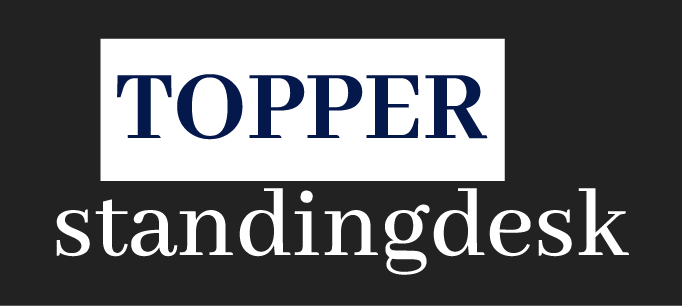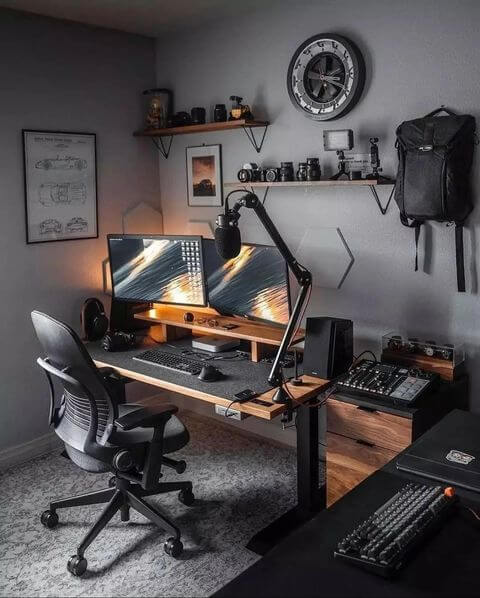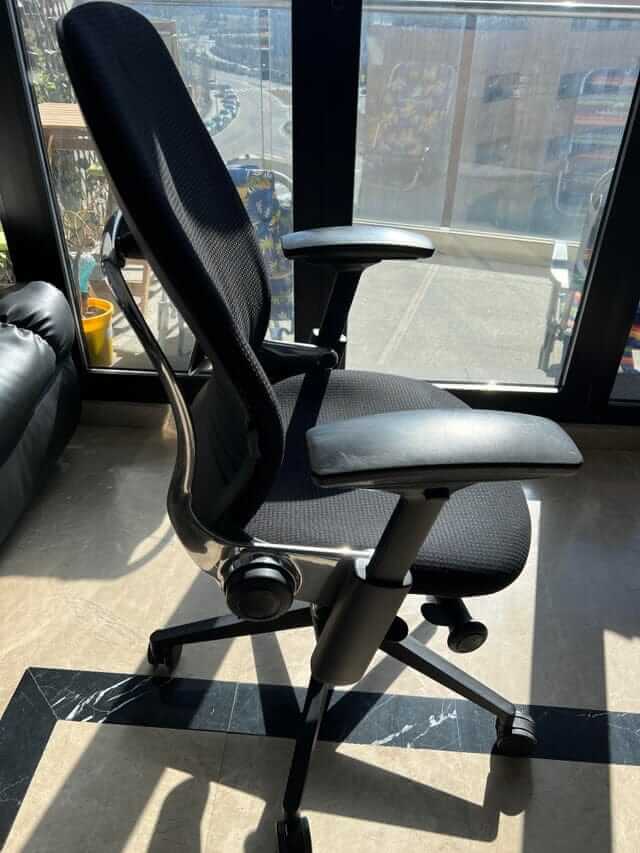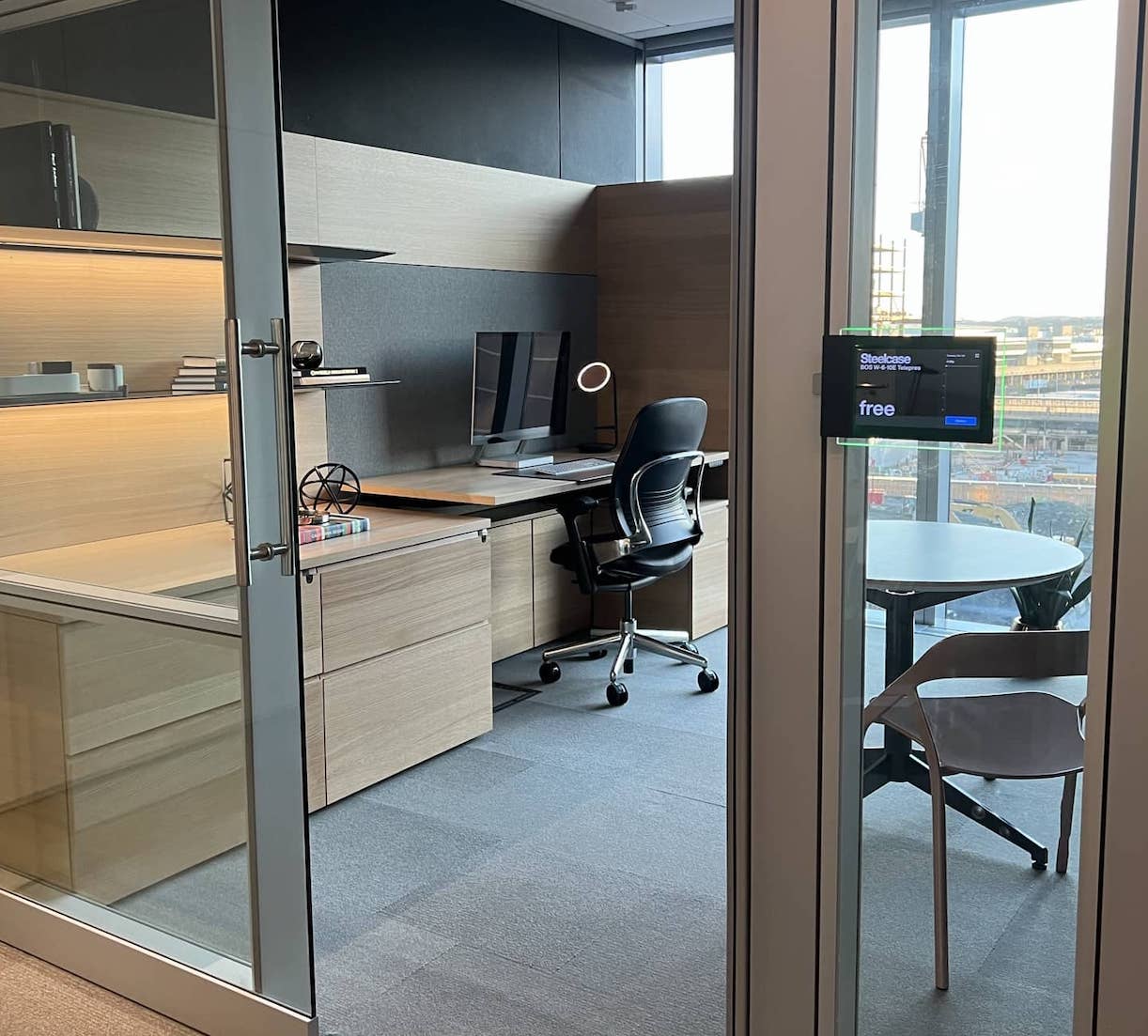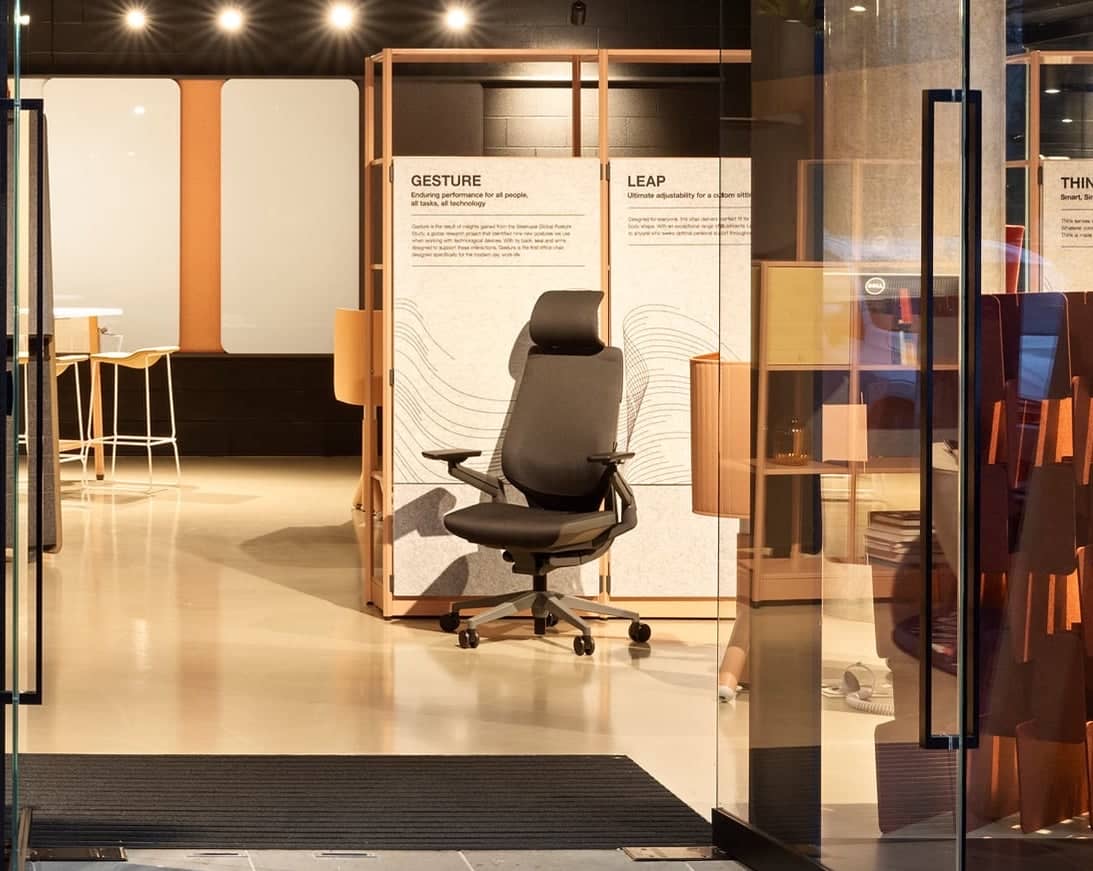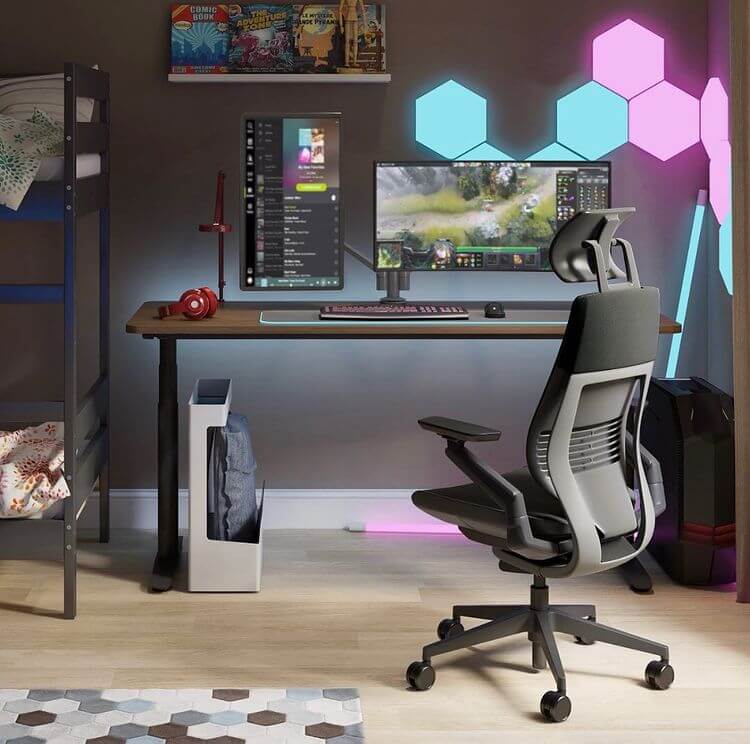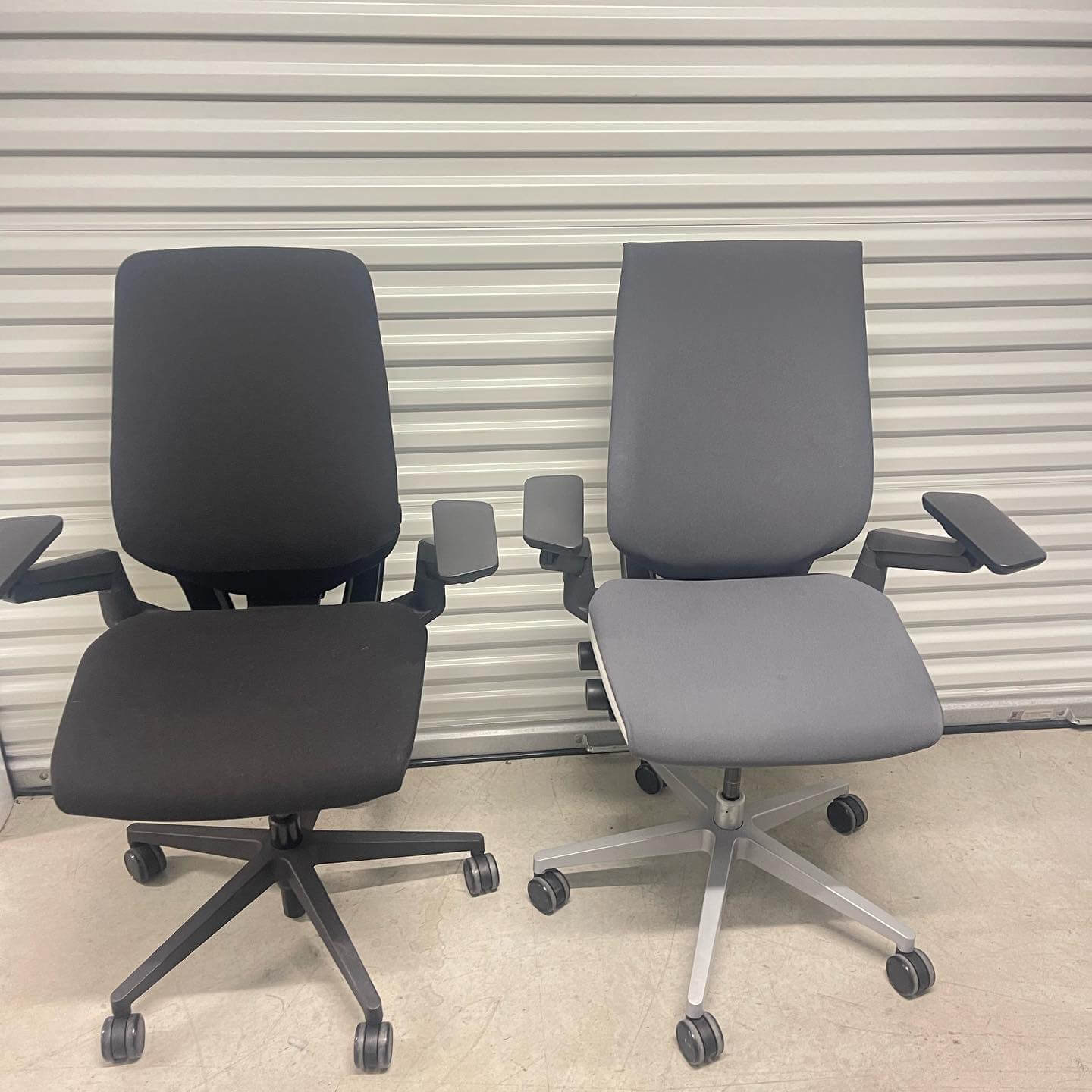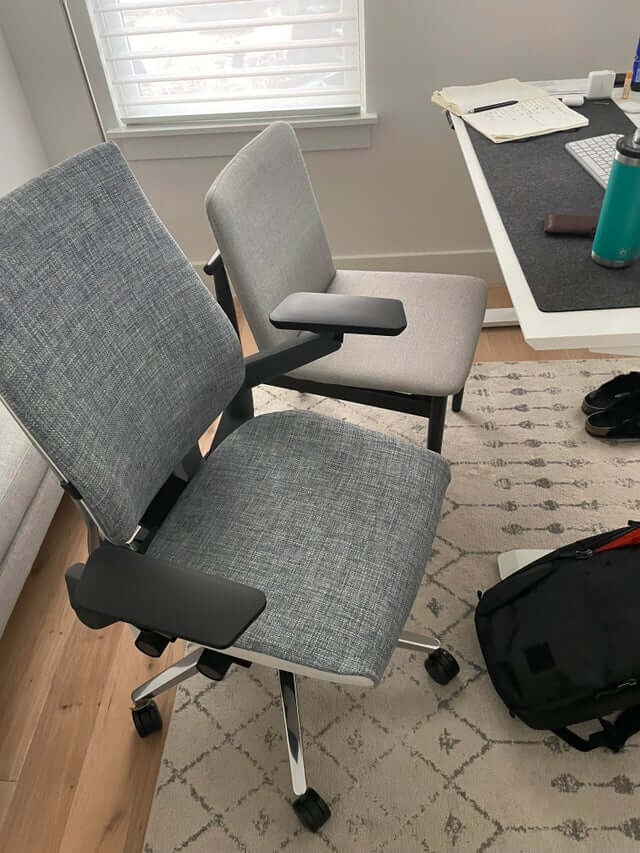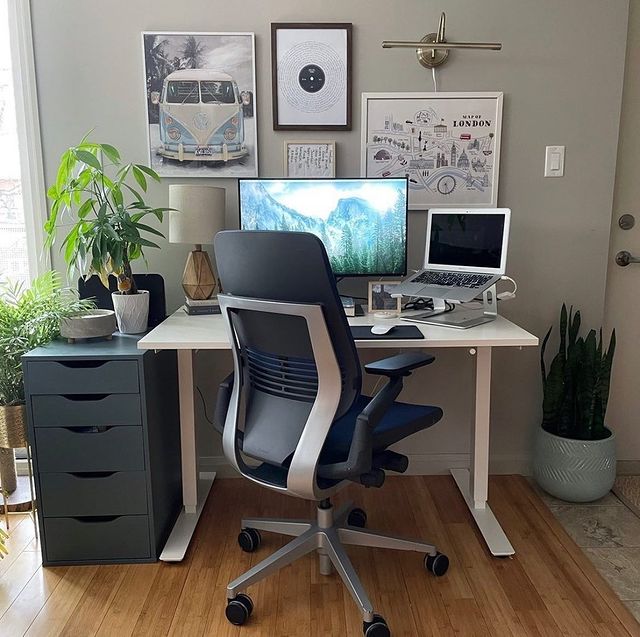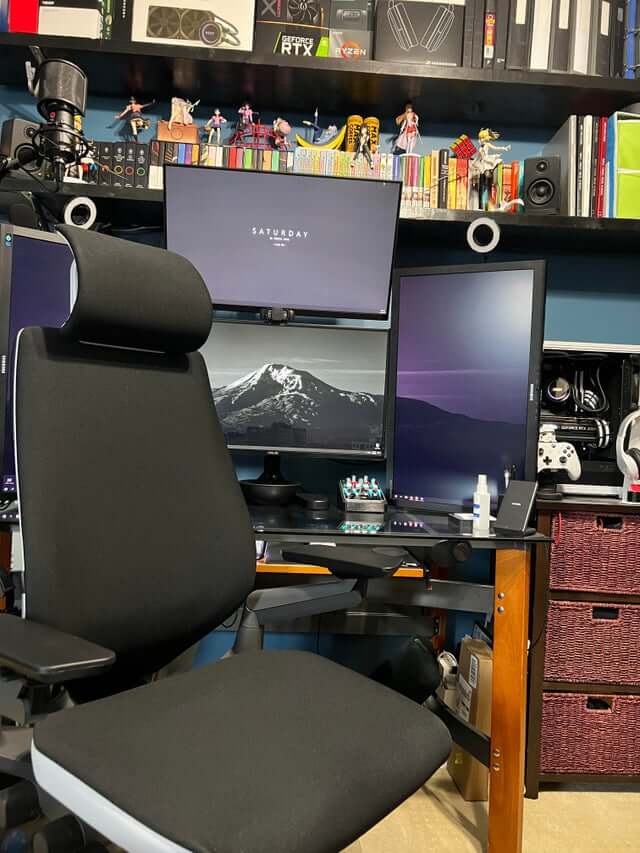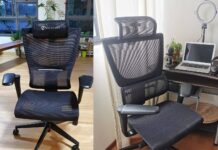Steelcase Leap of Gestures. It’s no secret that these two office chairs are among the more ergonomic and premium brands. But we’ve been asked many times, which is a better option and why?
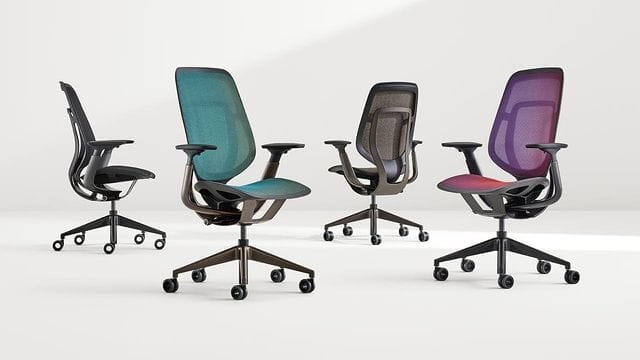
So without further ado, let’s begin the showdown. But first, let’s check out the comparison table below.
| Steelcase | Leap V2 | Gesture |
| Price | Check | Check |
| Weight capacity | 400 lbs | 400 lbs |
| Seat Height range | 16” – 21” | 16” to 21” |
| Features | LiveBack technology, 4-way arms, adjustable lumbar support, the backrest angle range of 96˚ to 120˚, adjustable seat pan | LiveBack technology, 4-way arms, seat slider function |
Standingdesktopper's pick
- Is the V2 a great “leap” from the V1 version?
- The upgraded Steelcase Leap has a more adjustable backrest
- The Gesture has a better seat pan adjustment
- Gesture got us with more “adjustable” armrests
- Is it a Leap or a Gesture?
- Steelcase Gesture is a more solid chair, right? So why Leap?
- Feedback from some users
Is the V2 a great “leap” from the V1 version?
Before we compare an apple to an orange, let’s first compare an apple to an apple of a different color, so to speak. So we are going to compare v2 with Gesture in this article, but before we go to the jeez, we have to first be able to differentiate the Leap V1 from V2.
V2 is the upgraded version of the Steelcase Leap. So you might expect that everything should be better, in all sorts and forms right?
So is it?
There are significant changes the brand made from V1 to V2.
We’ll discuss the good changes first. Good news first then the bad or not-so-good news.

One, the back design of the V2 is higher than that of the V1 and it has adjustable lumbar support.
This is perhaps the more favorable change in V2. The old version does not have lumbar support. In V2, you can adjust the lumbar support by moving the lever up and down. And due to the additional lower back support, the chair also seemed like it is curvier. The newer version is closer to mimicking the natural S-shaped curve of the spine compared to the V1.
The backrest and seat of both chairs are made of foam. But the V1 felt more firm and pushy whereas that of the V2 felt more springy. It does not really have something to do with the foam, but rather the additional lumbar support.
The V2 seemed like it was made of two different parts, the upper back and the lumbar. So it felt more flexible and more bouncy. The V1 can sometimes come off as too rigid. And of course, the lack of back support makes them less accommodating for sitting longer on the chair.
Two, the seat pan may look pretty much the same. But the V1 has an adjustable lip on the seat. But it did not make much difference when you’re sitting on it because the V2, despite lacking an adjustable lip, felt quite flexible. So in a sense, it feels like it does have an adjustment.
Now onto the bad bits or not-so-good ones.
And this made a really big difference in the overall feel of the armrests. The V1 has a steel material on the arms, so it feels more supportive. But it also made the arms heavier. You’ll feel the weight when you are adjusting the chair. So because the arms of V2 are made of plastic molds, it did make the unit lighter and easier to adjust. But it did make the arms feel less sturdy. So you’ll feel a bit of wobbling racing side to side.
But the arms of the V1 are 3-way and the V2 has 4-way arms. The brand added depth stability, but the quality or stability might be compromised a bit. The arms of the V1 are also thicker so might offer full support for the elbows. On the other hand, the arms of V2 have a slightly narrower shape. Though more aesthetically pleasing, that of V1 has fuller support.
The design of the V2 is also more streamlined and sleeker. It is now similar to most modern ergonomic chairs. But it did seem to hold up the same 400 lbs weight capacity despite the lack of steel components, so that is amazing.
So while the arms of the V1 are sturdier, the chair is outdated and heavy. The addition of the adjustable lumbar support made the Leap V2 chair in the running against the new chairs that are springing up in the market.
And oh, we cannot compare the Gesture to the Leap V1 because they do not manufacture Leap 1 anymore.
The upgraded Steelcase Leap has a more adjustable backrest
When it comes to the back support, the Leap offers more flexibility and adjustability.
Gesture’s backrest is also quite flexible. It offers micro-movements to ease a sore back. But if you try to lock the chair upright, it won’t necessarily hold you upright. You’d still be able to rock the chair back and forth, and this can be a good thing. Well, unless you need to really lock the chair in an upright position.
Gesture’s basic unit does not have an adjustable lumbar. Though you have an option to get one at an additional cost. And this is where The V2 may offer more value, it already has an adjustable backrest at a lower cost.
You can also change the tension of the upper back, as well as the tension on the lower back. So the back support is also more pronounced. At the same time, it can cater to more users.
That of the Gesture, on the other hand, you must upgrade to get back support. And albeit having one, the lumbar support isn’t as pronounced as that of the Leap.
The Gesture has a better seat pan adjustment
Though the Leap has a seat depth adjustment of up to 3”, we felt like the gesture offers more in this department.
The seat slider function of Gesture is a bit different from how you would adjust the seat pan for most chairs. Most ergonomic chairs feature a butt sliding mechanism to adjust the seat pan. And most find it annoying and quite difficult to adjust.
Now, by using a knob that you can easily dial, changing the depth of the seat pan is easier for anyone.
Gesture got us with more “adjustable” armrests
Now, this is where the Gesture excelled, except for the steeper price and the built. The armrests are “more adjustable”. But don’t get confused, both the Leap and the Gesture have 4-way adjustable arms. They can both be adjusted up and down, pivot in and out, change width and depth. But what sets the Gestures apart is that it has a wider range of adjustment. So it can cater to most users.
It offers a wide range of adjustments, it offers 10” of adjustment. So everyone can fine-tune the arms to their heart’s content. That sounded more comfortable and more supportive, right?
You’ll be able to move it closer or push further from you compared to the Lepa’s armrests. The arms of Gesture also feel more supportive and don’t rock, not wobbly like that of Leap.
Is it a Leap or a Gesture?
The Gesture has a higher price point.
Construction-wise, it feels more sturdy and has more heft to it. With the upgrade of Leap from V1 to V2, it was made lighter, sleeker, and with more plastic parts instead of steel.
And this made the Leap less solid compared to Gesture. But of course, compared to other office chairs, it is still more solid.
The Gesture also has wider adjustments for the arms. Users can fine-tune it according to their preferences.
So it may just come as a surprise that we’re choosing the Leap over the Gesture.
The back of the Leap is quite comfortable.
Though Gesture can rock back and forth, it can’t be locked upright. So if you need firmer support, you won’t get it. It’s always going to be bouncy. And Leap has a more pronounced backrest, more ways to adjust the tensions of both upper and lower back support. And the chair can be locked upright when needed, so it feels more firm and supportive. So you can choose from slightly firm support to a bouncy one.
Aside from the backrest, your legs will also feel more comfortable in the Leap. Though both Steelcase chairs are made of the same high-quality foam, we did find the Leap comfier on the thighs. The flexible almost adjustable lip helps prevent pressure on the legs. While Gesture isn’t far behind, Leap wins by a one-point lead.
And you have to spend more on Gesture to get the adjustable lumbar support. But even with it, The Leap still feels more pronounced and more supportive. And it costs a lower price than Gesture, with or without the adjustable back support.
But the Leap and Gesture share a common flaw. Both Steelcase office chairs do not have an adjustable backrest. So both chairs will only be able to accommodate users up to 6’4”, no more than that. Otherwise, you’ll find the edge of the backrest pinching against your shoulders.
Steelcase Gesture is a more solid chair, right? So why Leap?
Yes, Gesture indeed feels more high quality compared to Lepa, but that comes with a considerable cost. And the arms are also unique and have a wider range. But there more people need sublime back support rather than a wide range of armrest adjustments.
So even if the Leap feels and is more plasticky, it really is more comfortable and supportive for the back. And this can help you last in the chair longer, more than an armrest with a 10 “ adjustment range.
But given the choice, we’d love to have the arms of Gesture on a Leap chair haha just wishful thinking.
Feedback from some users
-
When comparing 2 chairs, it’s better when you are using both, a guy said: “I have a Leap V2 and a Gesture so I can speak to those. I much prefer the Gesture. I’m not really a fan of the Leap honestly.
I’d also go new and get exactly what you want, for 8-10 hours a day for years couple hundred extra isn’t that big of a deal”. (Source)
- Some people give a piece of advice that doesn’t care much about the price, just pick the one that is suitable for you, we couldn’t agree more than that.
- A case study from David Crandall shows the pros and cons of both Steelcase Gesture and Leap, the short version we noted here: “The Leap has been the gold standard for a long time for a reason – it’s a well-built chair, very ergonomic, very adjustable, and with the exception of only a very small percentage of the population, works great for almost everyone! The big standout feature on the Leap is the back support and lower back firmness adjustment – it really lets you fine-tune the back support to a level that few other chairs can.
The Gesture is the newest flagship from Steelcase and shares a similar level of build quality, ergonomics, and adjustability, and it similarly fits a very large percentage of the population very well. The Gesture has a slightly flatter seat than the Leap, and a significantly better optional headrest, and the arms on the Gesture are completely unique to that chair and in my opinion are the best, most adjustable arms on any chair made today.
I have sat in both chairs for years each and has settled into a Gesture with a Headrest, and probably don’t plan on switching anytime soon. The staff here is pretty well split between using the Leap or Gesture. It’s really a tough call if you are buying them blind – if you can test them in person that would probably be the best-case scenario.”
-
A guy using the Leap V2 for working and gaming for 10 hours found its amazing chair. He wrote: “I own a Leap V2, spend many hours at my desk working, watching movies, playing games, and browsing the internet. I haven’t once wished I had a headrest.
It’s not a lounging chair by any stretch, but I can sit in it for 10 hours most days and not be uncomfortable.
You should see if there is anywhere you can go to sit them side by side. It’s what made me decide on the Leap V2 over the Aeron” (Source)
Related showdown: Steelcase Gesture vs Herman Miller Embody
